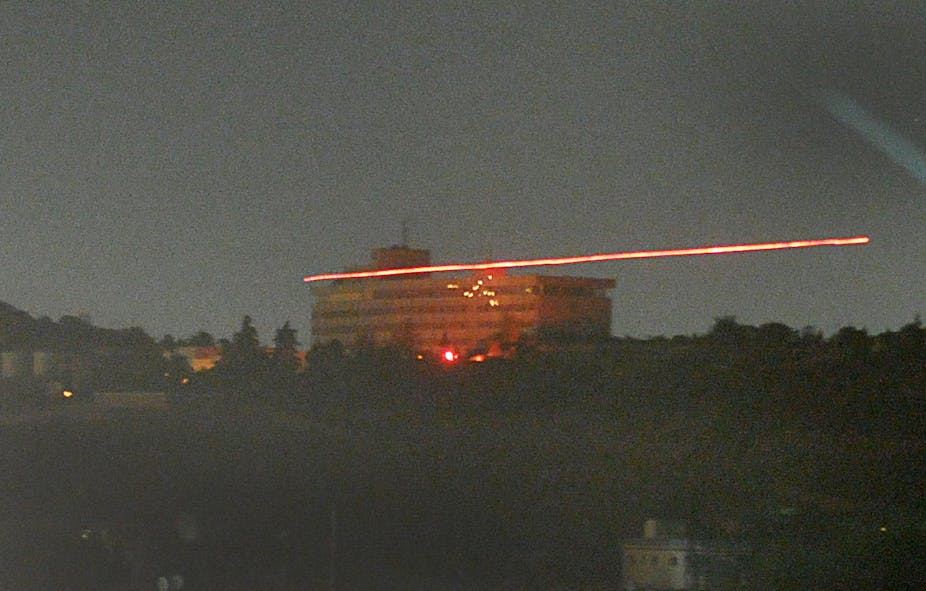The overnight attack by Taliban forces on Kabul’s Intercontinental Hotel demonstrates the ability of the Islamist group to attack Afghan and Western targets in all areas of the country.
At least six Taliban members, including suicide bombers, assaulted the heavily defended hotel and gained access to the main building.
Local Afghan forces and NATO struck back at the Taliban fighters who were using machine guns and rocket propelled grenades. After calling in support from helicopter gunships, NATO officials declared the attack over. The bodies of six civilians, in addition to the attackers, have been located so far.
The Conversation spoke to Deakin University expert Mat Hardy to put this most recent development in the bloody Afghan conflict in context.
The last week has seen the US announce troop drawdowns and acknowledge that the Taliban will be part of negotiations to end the Afghan conflict. Why would the Taliban launch a major attack like this now?
It is fighting season. It is springtime in Afghanistan and young men’s thoughts turn to attack.
The Taliban are still claiming their place at the [negotiating] table in some respects. The talk of drawdowns is one thing, but there has also been a lot of talk that the Taliban are going to be party to the negotiations and what is going to happen to Afghanistan in the future.
That is all very well but there are still some fundamental irreconcilable differences between the Taliban ambitions and the more secular and democratic ambitions of the US and other parties involved in Afghanistan.
So, counter-intuitively, we could see increased violence in the lead up to peace talks?
I don’t know if it is possible to treat every part of the Taliban as a unified force. There can be factions and interests within the Taliban that have their own ideas. It does seem paradoxical but the more noise you make, the more likely you are to be listened to at any negotiations that do ensue.
Even if we peace negotiations are successful, will there be a Taliban element who are perpetually disaffected, as in Northern Ireland?
Northern Ireland is the classic example of that. But there you’ve only got two religious/ethnic dealing with each other where in Afghanistan you’ve got multiple ethnicities and tribal schisms that are always going to make sure that somebody is out in the cold
Does this demonstrate Western and Afghan security forces have lost control of Afghanistan? Are we going to see a Saigon-style ‘helicopters from the embassy’ type withdrawal from Afghanistan?
That would be a very alarmist point of view. Terrorists always improvise, adapt and overcome. Certainly it shows a slight change in tactic and it is certainly a tactic that garners more fear but I think it is a bit too soon to say that the US embassy is going to be evacuated by helicopters from the roof.
The set-piece attack on a major compound has become increasingly popular with Islamist militants. Why?
It is certainly something that has been happening a lot more in Afghanistan lately. The Taliban infiltrated a hospital a couple of weeks ago, before that they did similar in a barracks. Likewise in Pakistan there was an attack on a naval base that went on for a couple of days.
It is the same sort of tactic of getting into a complex and fighting it out. If it is something that seems to work, and definitely the longer you can sustain an attack the more attention you get.
One guy blowing himself up at a bus stop in Kabul doesn’t get anywhere near as much as attention. But when you can sustain the attack for a few hours as they did at Mumbai it gets you a lot more publicity.

